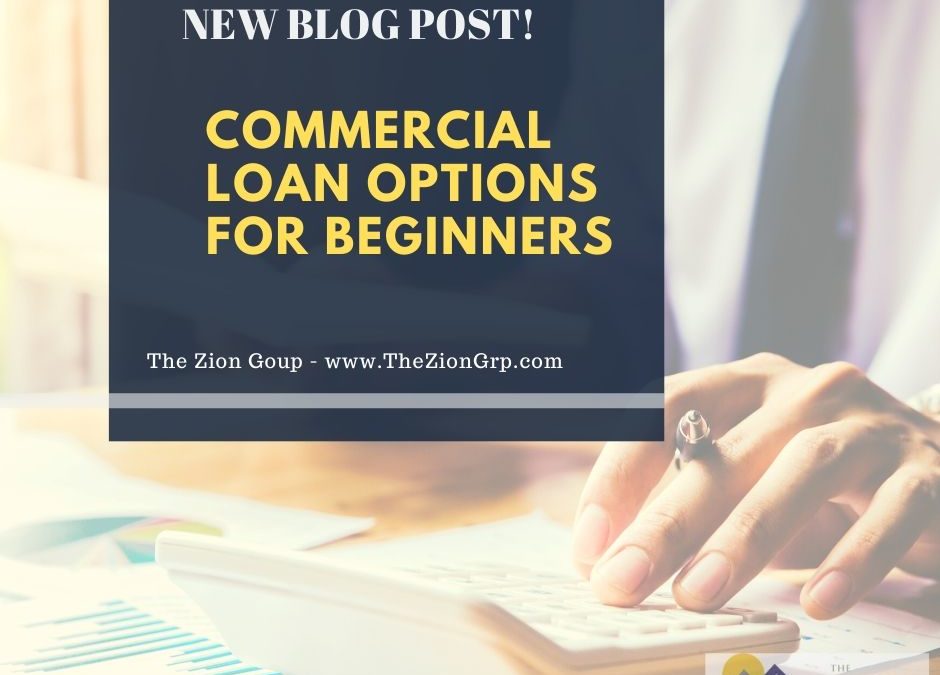You’re looking for the best commercial loan option. Investing in real estate for your business or someone else’s business is a great way to expand your revenue — especially since you can receive passive income. Some of the most successful people take the leap to invest in commercial real estate. The opportunities are endless.
Now, that you’re excited about commercial real estate investing you should also know about the loan options you have available. Whether you’re looking to purchase a multi-family apartment complex, industrial buildings, a small store/strip mall, or an office space you can utilize commercial real estate to work for your legacy and other business goals.
Remember that you don’t have to be a full-time investor. Commercial real estate investing can be done while working your regular job or running your other business. Having multiple streams of income (especially real estate) is one way to always stay afloat with an ever-changing economy.
Let’s look at a few commercial real estate loan options to see find out which will be the best for your individual needs.
What a Lender Needs to See From You
On average, a commercial lender will want to see that you inhabit more than half of the property that you’re looking to own. This means you need to have a strategic plan for the small business building you’re wanting to purchase.
You can map out the property and have a plan for how you will use the space and whether or not you plan on renting some of the building out to another tenant/small business.
It’s an excellent idea to have your business finances in order. If your finances and credit aren’t looking so good you can find a trusted partner to work with to help you get the property. Sometimes partnerships and group financing are an excellent way to get into commercial real estate, especially if you’re a beginner.
Your lender will typically want to see previous tax returns (from the last five years), credit history from all involved parties, a property business plan (how you’ll use this real estate) and your business certifications (LLC, etc..)
Making sure that the numbers side of everything makes sense is going to be the key you need to get approved for the loan of your choosing. Now we can get into each type of loan that is available for commercial real estate.
Types of Loans
What is pre-funding?
Pre-funding simply means that your loan provider can quickly get you approved for a loan through the documents you’re required to provide. Depending on the connections of your loan company/officer this option may be available.
Let’s break down each type of loan for commercial real estate. The following excerpt is from ThanMerrill:
- “SBA 7(a) Loan For Commercial Real Estate: As their names suggest, SBA 7(a) loans are backed by the U.S. Small Business Administration. While there are several types of SBA loans, this particular one is specifically tailored to those who want to purchase or refinance owner-occupied commercial properties up to $5,000,000.
- CDC / SBA 504 Loan For Commercial Real Estate: Also backed by the U.S. Small Business Administration, CDC / SBA 504 loans are best suited for those who need more than the $5,000,000 offered by SBA 7(a) loans.
- Traditional Commercial Mortgage: Traditional commercial mortgages are offered through institutionalized banks and lenders. Traditional loans tend to range from five to 20 years but are great for those with good credit and in need go longer loans.
- Commercial Bridge Loan: Commercial bridge loans help investors secure immediate financing, giving them a chance to search for a more long-term solution in the interim. Bridge loans help investors bridge the gap between when they need immediate funding and when they can find a more permanent solution.
- Commercial Hard Money Loan: Commercial hard money loans are reserved for those with a need for short-term loans. They tend to come with higher interest rates, but the price comes with a benefit. Since hard money lenders aren’t associated with an institutionalized bank, borrowers can receive the money fast, and without a perfect credit score.”
The SBA (Small Business Administration) 7 loan is the most popular for commercial real estate investors and those looking to house their small business in a new area. Since this loan is backed by the government, you’ll need to take all the precautions listed in this blog so that you come to the lender fully prepared.
Some say that these loans are difficult to obtain but as long as you have creditworthiness, business banking statements, tax returns and a viable business plan for your commercial real estate you won’t have much to worry about.
*In the event that your loan goes into default, the commercial real estate property itself becomes collateral since insurance typically isn’t available for commercial properties.
Closing The Deal: Everyone Wins
Finding and securing a viable loan is a win-win situation for both you as the client and the lender. Think of your commercial real estate lender as your business partner. Make sure you’re completely honest with yourself and them in regards to the property, your history, business goals and everything else required of you.
Having an excellent business plan in place while making sure the numbers side of everything makes sense is of extreme importance. If need be, you can work on your business finances until you’re in a better standing to get approved for a commercial real estate loan. As long as everyone takes care of their side of the deal you’ll have great success in your commercial real estate endeavors.
For all questions, concerns or to get started with commercial real estate investing contact us so we can get your commercial real estate goals accomplished!
(858) 324-1951
Keith McLaurin | Licensed Commercial Broker ID#01190109 / NMLS#1209195


Recent Comments